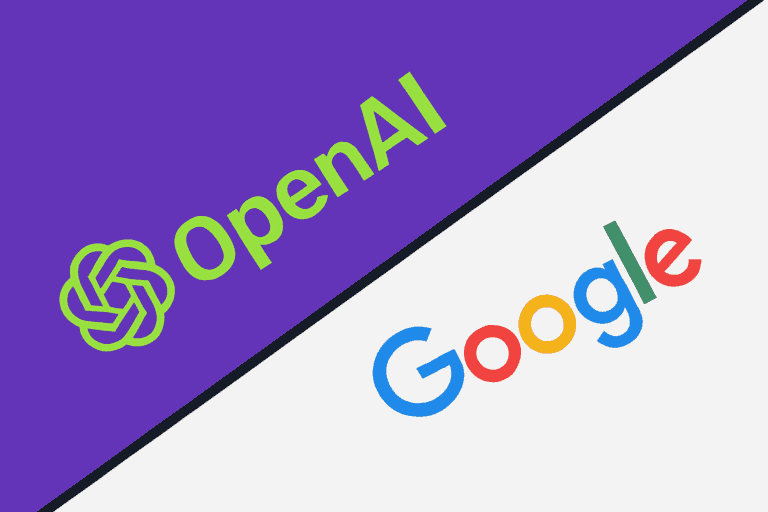The marriage between Microsoft and OpenAI is well and truly over. However, the latter needs AI computing power, and Google Cloud has now been called in to help. At the same time, OpenAI is lowering its own prices and launching new models to outperform Google’s Gemini team.
Reuters discovered the Google Cloud deal through three sources. OpenAI had already made itself cloud-independent from former financier Microsoft. Among other things, the Stargate project for a US-wide AI infrastructure offers a way out for CEO Sam Altman’s company. He himself also aims to give OpenAI a strong presence in the Middle East.
Partner and competitor
After a false start with Bard and AI Overviews in its well-known search engine, Google now seems to be leading the way in LLM. While Anthropic, Meta, Mistral, DeepSeek, and OpenAI are far from having enough to offer for a complete AI infrastructure, Google has what it takes. In addition, the latest Gemini models are competitive with the strongest competition.
OpenAI wants to change that, both through price reductions and new LLMs. o3 has become a whopping 80 percent cheaper via the API. The strongest OpenAI model (to date) is now not $10 per million input tokens and $40 per output tokens, but $2 and $8, respectively.
However, o3 will no longer be the smartest AI option for ChatGPT Pro and Team users. This week, OpenAI unveiled o3-pro, a more powerful version of o3 and the replacement for o1-pro. The company is charging a hefty API price for this: $20 per million input tokens and $80 per million output tokens.
No problem
When Microsoft teamed up with OpenAI, it seemed like an extremely smart move. Without access to the latter’s LLMs, the army of Copilot options would not have been available, or would have arrived much later, and Microsoft would have had a much more difficult path to follow towards a mature AI approach in 2023-24. In 2025, Google’s internal development appears to be paying off in the medium term. While Microsoft now has to try to reduce its dependence on OpenAI, Google is building on the successes (and failed projects) it has achieved so far.
In addition, the deal with OpenAI is likely to be very lucrative. Even if Google’s own strategy looked less positive than it does now, the Cloud division would have given the company a significant financial boost to help it catch up.
In the longer term, analysts told Reuters that Google has something to fear from ChatGPT as an alternative search engine. That may well be true. However, that is still a long way off, and it is unclear whether “AI search” has already been developed in the right form. Google is experimenting extensively, with AI Mode as its latest initiative. Here, Google Gemini provides a similarly readable answer to users’ questions, but with much clearer links to additional information than is the case with ChatGPT or Perplexity. So Google is not doing too badly in that area either.
Read also: OpenAI and Google sign deal for cloud computing capacity
